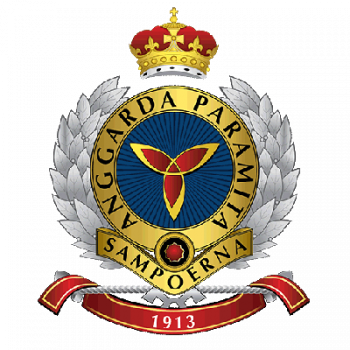Profil PT Sampoerna Agro Tbk
Profil Perusahaan / Lembaga - PT. Sampoerna Agro, Tbk
Deskripsi Perusahaan / Kelembagaan
Penanaman pertama di dalam Kelompok Usaha Sampoerna Agro dilakukan oleh PT Aek Tarum pada tahun 1989, yang diikuti dengan pendirian PT Sampoerna Agro Tbk (sebelumnya bernama PT Selapan Jaya) di tahun 1993 untuk menjalankan perkebunan kelapa sawit di wilayah Sumatera Selatan.
PT Sampoerna Agro Tbk (SGRO) was established under the name of PT Selapan Jaya on 7 June 1993. The Company’s name was subsequently changed to PT Sampoerna Agro Tbk in 2007. PT Sampoerna Agro and its subsidiaries (collectively referred to as Sampoerna Agro or the Company) is a plantation company that strives to become an integrated and diversified plantation with sustainable longterm interests. The Company engages in the production of palm oil products, superior oil palm seeds (DxP Sriwijaya seeds), and nonpalm products that include sago (Prima Starch) and rubber. Palm oil constitute the core business of the Company as revenue contribution from CPO and palm kernel makes up more than 90% of consolidated revenue.
To Become One of the Leading Agribusiness Companies that is Accountable in Indonesia
To pursuit its vision of becoming one of the leading agribusiness companies that is accountable in Indonesia, Sampoerna Agro attempts to attain sustainable business operation that focuses on four basic fundamentals: people, planet, product, and profit.
For Sampoerna Agro, sustainability is articulated through green initiatives
Including adhering to the highest criteria for sustainable palm oil development and other environmentally-friendly benchmarks. At the moment, Sampoerna Agro has obtained various certifications in palm oil sector such as the Roundtable on Sustainable Palm Oil (RSPO) and International Sustainability & Carbon Certification (ISCC) certificates. We have also complied with the local best practices under the Indonesian Sustainable Palm Oil (ISPO) certification.
To uphold higher level of sustainability in its business operations, Sampoerna Agro is also collaborating with considerable amount of smallholder farmers. In total, smallholders’ estates under the Company guidance make up more than 35% of the total planted area, which is one of the highest proportion in Indonesia.
Strategic Fundamentals for Business Diversification
To ensure a sustainable growth trajectory, the Company employs a multilayered business diversification strategy, focusing on geographical distribution and product portfolio, and supported by intensification efforts to boost performance further.
Since being a publicly listed Company in 2007, the Company’s total nucleus palm oil acreage has grown more than double to 84,757 hectares (ha). Most of the Company’s plantation expansion efforts have been focused in Kalimantan, and by the end of 2019 its plantation area in Central and West Kalimantan had reached 40,157 ha, more than three times the size in 2007. Thus, the fresh fruit bunch (FFB) contribution from Kalimantan to the Company’s total FFB has risen from 11% in 2007 to 30% in 2019. Growing contribution from Kalimantan is in line with the Company’s goal to attain geographical diversification for the purpose of minimizing monthly production output fluctuations. By the close of 2019, the proportion of nucleus plantation in Sumatra as opposed to Kalimantan is well-spread, as shown by a ratio of 53:47
The Company has eight mills, of which five are situated in Sumatra and three in Kalimantan. The mills in Sumatra have a total capacity to produce 380 tons of fresh fruit bunches (FFB) per hour, whereas the mills in Kalimantan have a capacity to produce 135 tons of FFB per hour.
The Company also persistently diversifies its crop portfolio as it seeks to reduce dependence on any single type of plantation commodity. Aside from focusing on oil palm, the Company also penetrated the sago industry, with a total planted area of 12,781 ha in Riau Province by the end of 2019. The Company produces high quality sago starch and markets it both domestically and internationally, under the brand name of Prima Starch. Since late 2012, the Company has also been investing in its industrial estate concession in West Kalimantan Province. Total planted area within the region has almost reached 20,496 ha, primarily composed of rubber crop.
Striving for Continuous Innovation
Sampoerna Agro strives for continuous innovation through its Research & Development (R&D) Division. This division is responsible for various activities aimed at securing for innovative solutions in the field of agronomy, such as pest and disease eradication and plant breeding. The fastgrowing palm seed business segment is supported by agronomics research and development facilities covering a total of 1,172 ha in South Sumatra.
PT Binasawit Makmur, a subsidiary of the Company, is engaged in seed research and seed germination activities. Since 1994, it has evolved into a broad-based agronomics research and development center. The Company produces 12 superior oil palm seed varieties, under the brand names of DxP Sriwijaya and DxP Sriwijaya Semi Klon (semicloned seeds). Apart from using it for own plantation estates, these superior seeds are sold to industry peers as well. The Company is committed to continuing its superior seed research and development efforts, in order to bring about greater innovations in the years to come.
The Company also has a Seed Processing Unit facility, and an integrated laboratory that specializes in soil, leaf, microbiology, tissue culturing, and biotechnology, located in Palembang, South Sumatera.
The palm seed distribution performed by the Company covers almost every region of Indonesia, i.e. Sumatra, Kalimantan, Sulawesi and Papua, and includes a distribution for small growers. Since 2008, all varieties of the Company’s seeds have been protected under the Plant Variety Copyright Protection issued by the Ministry of Agriculture of the Republic of Indonesia.

